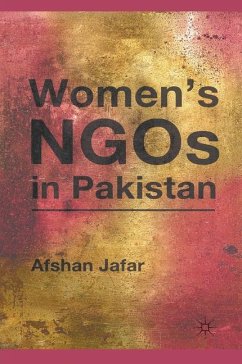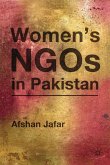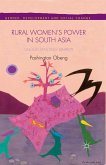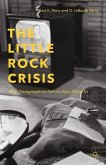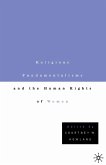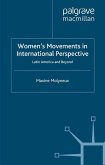How do NGOs overcome the suspicion of them as "Western" agents? How do they convince people that contrary to common perceptions, they do not "lead women astray from Islam"? And how, in the context of poverty, religious fundamentalism, and ethnic conflict, do NGOs convince people that women s issues merit any attention at all? This book uncovers the skillful maneuvering that women s NGOs have to perform in order to survive in a hostile environment. Drawing on interviews, participant observation, and published materials by and about NGOs, this book analyzes the strategies used by Pakistani women s NGOs to advance women s rights in a conservative - and often antagonistic - environment.
"Expand(s) the discussion of civil society, especially when organized as NGOs, in significant ways . . . (and) utilizes a valuable gender lens in thinking about the failure of nations and markets to meet human needs . . . Afshan Jafar focuses on two case studies of women's NGOs set in Pakistan . . . The significant structural feature that contextualizes both of Jafar's case studies is Pakistan's recent history, in which the quest for a postcolonial national identity has converged with a rising tide of political Islam, to define authenticity in ways that make the work of women's rights particularly difficult and even dangerous . . . Her methods produce vivid vignettes of the way that nationalism allied with relgious fundementalism constrains women's freedom." - Gender & Society
"Afshan Jafar addresses a question of enormous importance to scholars of women's studies and South Asia: how have women's NGOs in Pakistan negotiated a hostile, conservative political environment? She reveals the complex strategies they have adopted toward the state, religious fundamentalists, and market forces. Read this book to gain a nuanced, informed, and sympathetic understanding of the complex dilemmas and challenges that women's groups in Pakistan confront. - Amrita Basu, Paino Professor of Political Science and Women's and Gender Studies, Amherst CollegeIn this brilliant and insightful book, Afshan Jafar raises many questions about the roles of women's NGOs in Pakistan. As she so effectively argues, it is crucial not to celebrate or castigate women's NGOs, but instead to show their historical context and their relations to the state, the economy, civil society, and larger cultural politics. By doing just this in her book, Jafar provides an important lens into the way women's NGOs navigate between feminist ideals and on-the-ground realities." - Joya Misra, Professor of Sociology & Public Policy, University of Massachusetts
"A very interesting and timely book. The issue of women's NGOs is an important topic and an examination of their challenges and prospects are very important in the post-colonial conditions in which many of these countries find themselves. This is especially important for Pakistan, which is involved in the war on terror and is inextricably involved with the US nation-building efforts in neighboring Afghanistan. Given the rise and challenge of local Islamist militants in Pakistan, the role and significance of these NGOs become extremely important for development studies. The first book on women's NGOs in Pakistan, it will be of use for upper-level undergraduate and graduate classes." - Ali Akbar Mahdi, Emeritus Professor of Sociology, Ohio Wesleyan University
"Afshan Jafar addresses a question of enormous importance to scholars of women's studies and South Asia: how have women's NGOs in Pakistan negotiated a hostile, conservative political environment? She reveals the complex strategies they have adopted toward the state, religious fundamentalists, and market forces. Read this book to gain a nuanced, informed, and sympathetic understanding of the complex dilemmas and challenges that women's groups in Pakistan confront. - Amrita Basu, Paino Professor of Political Science and Women's and Gender Studies, Amherst CollegeIn this brilliant and insightful book, Afshan Jafar raises many questions about the roles of women's NGOs in Pakistan. As she so effectively argues, it is crucial not to celebrate or castigate women's NGOs, but instead to show their historical context and their relations to the state, the economy, civil society, and larger cultural politics. By doing just this in her book, Jafar provides an important lens into the way women's NGOs navigate between feminist ideals and on-the-ground realities." - Joya Misra, Professor of Sociology & Public Policy, University of Massachusetts
"A very interesting and timely book. The issue of women's NGOs is an important topic and an examination of their challenges and prospects are very important in the post-colonial conditions in which many of these countries find themselves. This is especially important for Pakistan, which is involved in the war on terror and is inextricably involved with the US nation-building efforts in neighboring Afghanistan. Given the rise and challenge of local Islamist militants in Pakistan, the role and significance of these NGOs become extremely important for development studies. The first book on women's NGOs in Pakistan, it will be of use for upper-level undergraduate and graduate classes." - Ali Akbar Mahdi, Emeritus Professor of Sociology, Ohio Wesleyan University

